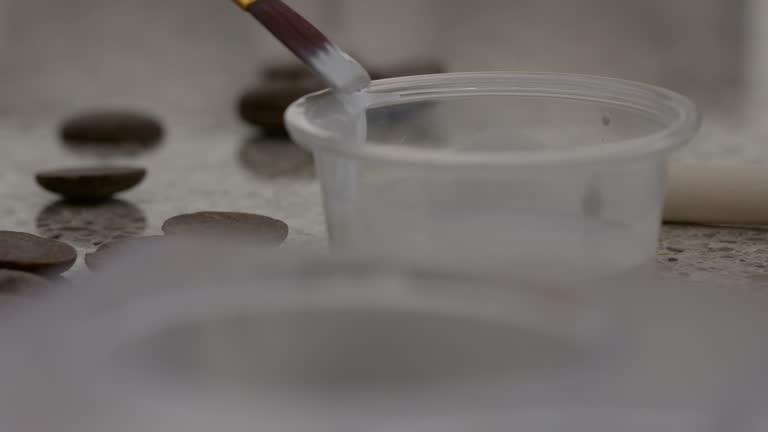Synthetic resin refers to high-molecular-weight polymers artificially synthesized through chemical processes such as polymerization, condensation, or addition reactions. These resins typically appear in liquid or solid form and exhibit excellent film-forming ability, adhesion, and thermosetting properties.
Depending on their polymerization characteristics, synthetic resins are generally classified as:
Thermoplastic resins, such as polyethylene and polystyrene
Thermosetting resins, such as phenolic and epoxy resins

Synthetic resins are not only key ingredients in plastics but are also extensively used in adhesives, synthetic fibers, and coatings. Their primary role is to enhance mechanical strength, durability, and functional performance across a wide range of materials.
Synthetic resin coatings—also referred to as synthetic resin paints—are surface finishing materials where synthetic resin serves as the main film-forming agent, often combined with pigments, solvents, and additives. These coatings provide protective, decorative, or functional layers to various substrates.
The table below outlines their key performance advantages:

| Feature | Description | Benefit |
|---|---|---|
| Excellent adhesion | Strong bonding with metal, wood, plastic, cement, and more | Prevents peeling, cracking, and flaking |
| High gloss & smoothness | Coating films exhibit a glossy, smooth finish when applied via spray or roll methods | Aesthetic appeal with scratch and stain resistance |
| Durability & aging resistance | Maintains color and integrity under UV exposure, humidity, and chemical attack | Extends service life of coated products |
| Formulation flexibility | Compatible with resins like acrylic, epoxy, and polyurethane to achieve heat resistance, flexibility, waterproofing, and flame retardancy | Customizable for diverse industrial and environmental needs |
The broad applicability of synthetic resin paints spans across multiple industries due to their versatile properties and adaptability to different substrates. Key application areas include:
Automotive – Used in exterior car paints for UV resistance, color retention, and smooth finish
Construction – Employed in architectural coatings for concrete, metal, and wood surfaces
Electronics – Applied as protective films in PCBs and electrical casings for insulation and moisture resistance
Furniture and appliances – Enhance aesthetics and surface protection for wood panels, plastics, and composites

These diverse use cases reflect how synthetic resin coatings enhance both form and function in everyday products.
With increasing demand for high-performance, environmentally friendly, and intelligent materials, synthetic resin and synthetic resin coatings are set to play an even more pivotal role in future materials science. Innovations in green chemistry, reactive polymers, and self-healing coatings will allow these systems to become more sustainable, efficient, and application-specific.

From structural materials to surface protection solutions, synthetic resins will continue to drive manufacturing innovation, offering a synergy of mechanical reliability and functional precision. Their evolution will be essential to the progress of modern industry—from electronics to infrastructure.